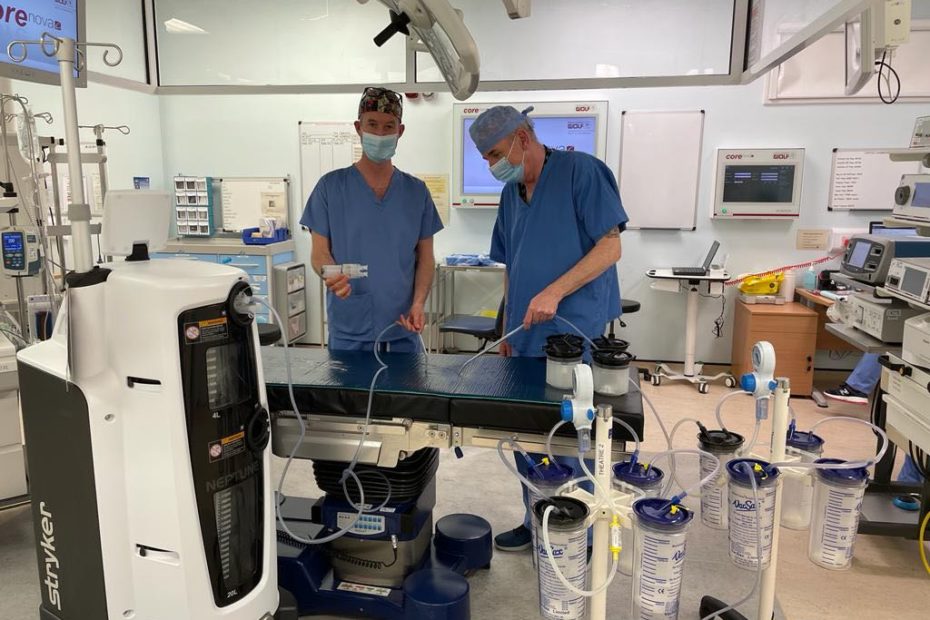
Staff at Glasgow’s Royal Hospital for Children are involved in a pilot programme to reduce carbon emissions associated with the collection and disposal of clinical waste within operating theatres.
Currently, suction waste is collected in single-use, two-litre plastic containers which contain chemicals to solidify the waste before being collected in plastic bags which are taken away to be heat treated in Lanarkshire or incinerated in Wales, with associated travel costs and additional carbon generated.
Consultant Paediatric Anaesthetist, Ewan Wallace, said: “Every time you are dealing with a new patient in the operating theatre, you have to go through the same process and swap all of this plastic, so it consumes a lot of plastic and also diesel in transport costs which is not good in terms of financial costs and costs to the environment.”
The new Neptune waste management system is a constantly closed waste management system that collects, transports and disposes of surgical waste fluid helping protect staff from exposure whilst increasing efficiencies in the operating room.
Two machines are being used in theatres six and seven at the RHC – however, they can be used in any theatre in the hospital.
The new machine collects up to 24 litres of waste suction fluid before being discharged, safely, into the general sewage system. The machine automatically cleans itself and can be used again. With no bags to change, the process is also quicker and safer for staff, with less chance of being exposed to clinical waste.
Ewan added: “From a staff perspective it’s a closed system, which means they don’t need to physically open all of these containers, reducing their exposure to waste, separating it from the staff.”
Clinical waste costs £460 per tonne to dispose of. As well as being more sustainable, the new system has the potential to release savings to the NHS too with reductions in waste disposal costs and procurement of single use plastic clinical waste bags.
Martin Johnston, Head of Sustainability at NHSGGC, said the financial and non-financial impact of the pilot programme will be evaluated before a decision is made to roll-out the system more widely. He added: “Right across health care, we need to find more sustainable and cost-effective ways of reducing our clinical waste production through implementing circular economy initiatives – which helps us meet our net zero targets.”
“Early feedback from the Neptune system has been really positive and I want to thank all of our colleagues who are working hard to meet our sustainability goals while delivering for the communities we serve.”
Ewan continued: “It really is a win-win in carbon savings, reduction in plastic use and cost. We’ve only used it for a few weeks and the response has universally been very positive.
“Everyone is thinking about how we can make all of our actions more sustainable, because let’s face it, we all have a vested interest in tackling the climate crisis.”
Pictured: Consultant Paediatric Anaesthetist Ewan Wallace (left) and Richard Brown who is an Operating Department Practitioner in paediatric theatres at the RHC. The machine, on the left, will replace all of the plastic on the right.

